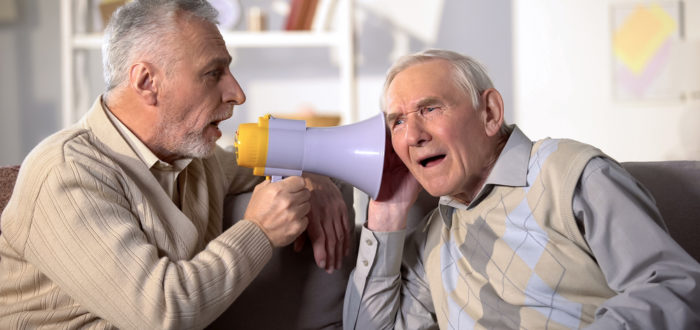It’s estimated that roughly 1 in 3 adults over 65 has hearing loss. The National Institute on Deafness and Other Communication Disorders highlights that almost half of adults over 75 have a hearing loss.
Age-related hearing loss is known as presbycusis. You may think that hearing loss is just a natural part of getting older. However, understanding age-related hearing loss can help you take preventative measures to protect your hearing.
We’re taking a closer look at X things you should know about age-related hearing loss.
Understanding Age-Related Hearing Loss
As we age, we notice changes in our bodies. Things that once seemed easy may present challenges. Hearing could be one thing that you notice you struggle with.
Presbycusis tends to occur gradually. Because of this, you may not actually notice any changes to your hearing until it’s progressed quite a bit. It’s often our loved ones that will notice the hearing loss first.
Age-related hearing loss is often caused by damage or changes to our ears. Our ears are made up of three parts:
- Outer ear
- Middle ear
- Inner ear
A series of delicate nerves, hair cells and bones connect the three parts of our ear. Working together with our brain, we are able to “hear” the world around us. When one of these systems is damaged, it can affect our hearing.
While aging can damage our ears, there are other things that can also cause damage to these structures. Dangerous noise levels can also damage our ears, resulting in something known as Noise Induced Hearing Loss (NIHL).
It can be difficult to distinguish hearing loss due to noise versus hearing loss due to aging. In many cases, it could be a combination of both factors that are affecting your hearing. It’s always important to speak to a hearing healthcare specialist if you are experiencing difficulty hearing. They will be able to more accurately identify the type of hearing loss you are experiencing.
Alongside noise and aging, your hearing can also be affected by:
- Medication
- Illness
- Diabetes
- Blood pressure
- & more
Symptoms of Age-Related Hearing Loss
As we mentioned, age-related hearing loss often occurs gradually. Watch out for the following symptoms that could indicate presbycusis:
- Difficulty hearing on the phone
- Difficulty following group conversations
- Frequently asking people to repeat themselves
- High volume on the radio / TV
- Background noise makes it difficult to concentrate
- People appear to mumble
Treating Age-Related Hearing Loss
The first step to improving your hearing is a hearing assessment. Your hearing healthcare professional will be able to identify your baseline hearing. In addition, they’ll be able to monitor for any changes to your hearing down the line.
Hearing aids can help to restore your quality of life and open up a world of sound. If you’d like to speak to our hearing specialists, please get in touch today. If you’d like to learn more, or to book an appointment today, call 208-497-3596.


Recent Comments